Most of us spend a significant amount of time at work. Whether you sit at a desk or work on your feet, your job takes up a large portion of your waking hours. Because we spend so much time at work, it stands to reason that accidents and injuries may occur from time to time. Though we hope that these injuries don’t get more severe than a papercut, many times, our jobs take a significant toll on our bodies. In these situations, workers’ compensation might be necessary.
The workers’ compensation system can be difficult to navigate. There are often denials and appeals to navigate, not to mention the essential deadlines and requirements. One of the most basic and difficult aspects of workers’ compensation is determining if you are even eligible.
Unfortunately, workplaces will not necessarily step up to take responsibility for accidents and injuries that occur in their facilities. Many times, it is on the injured person to ensure that they receive proper compensation and care. To do that, one must first be able to identify what does and does not qualify as a workplace injury.
Workplace Injury Basics
Every workplace injury is different. However, it is possible to generalize a bit about what will qualify and potentially give you grounds to collect workers’ compensation.
Overall, a workplace injury is simply any injury that occurs at work. This can be an exacerbated preexisting condition or an entirely new injury. The key is that the workplace or work environment directly contributed to the injury. This includes:
- The building, equipment, machinery
- The demands of the job
- Negligence
- The environment, conditions, or atmosphere
As you can tell, this encompasses a fair number of injuries and accidents. The key is to prove that the work environment directly contributed to the injury.
What Is Not Considered a Workplace Injury
It can be simpler to describe the categories that OSHA and most workers’ compensation organizations do not recognize as workplace injuries. The following will not get you workers’ compensation:
- Stress
- Injuries that occur as the result of fights, goofing around, or horseplay
- Injuries that were self-inflicted
- Injuries obtained while under the influence or otherwise participating in illegal activities
- Injuries that occurred during company protocol violations
Mental and Psychological Injuries
Psychological trauma and difficulties are difficult, but not impossible, to prove when it comes to workplace injuries. This is because the world of mental health is much more abstract than physical healthcare. It is far easier to determine when and how you broke your leg, whereas it is extremely difficult to pinpoint when and how someone developed depression.
Following Workplace Protocol
A key aspect of receiving workers’ compensation is proving that you were following company protocol at the time of the accident. This is because businesses are legally bound to protect their employees from harm. This means developing safety protocols, behavior standards, and more to keep employees safe. If an employee fails to adhere to the safety and behavior protocols, the company cannot be held responsible. However, if an employee followed the company’s rules and still got hurt, the company is to blame for failing to implement proper standards and procedures.
Proving A Workplace Injury
Unfortunately, the main challenge is proving that the injury was caused by the work environment or job. Because workplaces aim to avoid lawsuits and payouts, they will likely do everything in their power to prove that the incident occurred outside of work or that you were otherwise at fault for what happened.
To avoid this kind of argument and strengthen your case, it is important to properly document a workplace injury when it happens. The more you can do to prove that the incident occurred because of your position, the easier the process will be.
If you are injured at work, do the following:
- Ensure that you are alright. Seek medical attention in life-threatening scenarios.
- Take photos of your injuries and any other damage to equipment or environment.
- Take note of who was present to witness the fall. Get their names and phone numbers if you do not already have that information.
- Call your attorney.
- Fill out an accident report with your manager or supervisor. Take a photo of the form before you give it to them to keep.
Your attorney may give you advice about filling out the accident report. They will also be able to advise you further on how to handle your injury and interactions with your supervisors, managers, and human resources personnel.
Why Prove A Workplace Injury?
Many people feel compelled to keep their injuries to themselves or forgo the workers’ compensation process altogether. It is important to understand why claiming your injuries has a positive impact on both you and other workers.
Even if the injury does not seem severe, it can easily develop into a situation that is difficult or expensive to manage. Down the line, a sprained ankle or a fractured wrist can wreak havoc on your body as a whole, especially if you do not see a doctor. Your body is your livelihood, no matter what line of work you are in. It is important that you take care of it so that you can continue to support your family and enjoy your life.
Furthermore, when you report a workplace injury, you are ensuring that your workplace is legally bound to ensure that the work environment improves. Clearly, current tactics are not working to keep workers safe. The company needs to reassess and implement policies that are better suited to overall safety. Though it may seem like a hassle, going through the workers’ compensation process could keep someone else from getting hurt in the future.
Contact Pratt Law Corporation
Here at Pratt Law Corporation, we understand how intimidating and difficult the medical claims and workers’ compensation processes can be. We are here to advise you on how to best manage your workplace injury claim and ensure you have the best chance of receiving compensation for your injuries. No firm is more experienced and more passionate than the Los Angeles workers’ comp lawyers at Pratt Law Corporation.
For more information or to schedule a consultation, contact us today.





